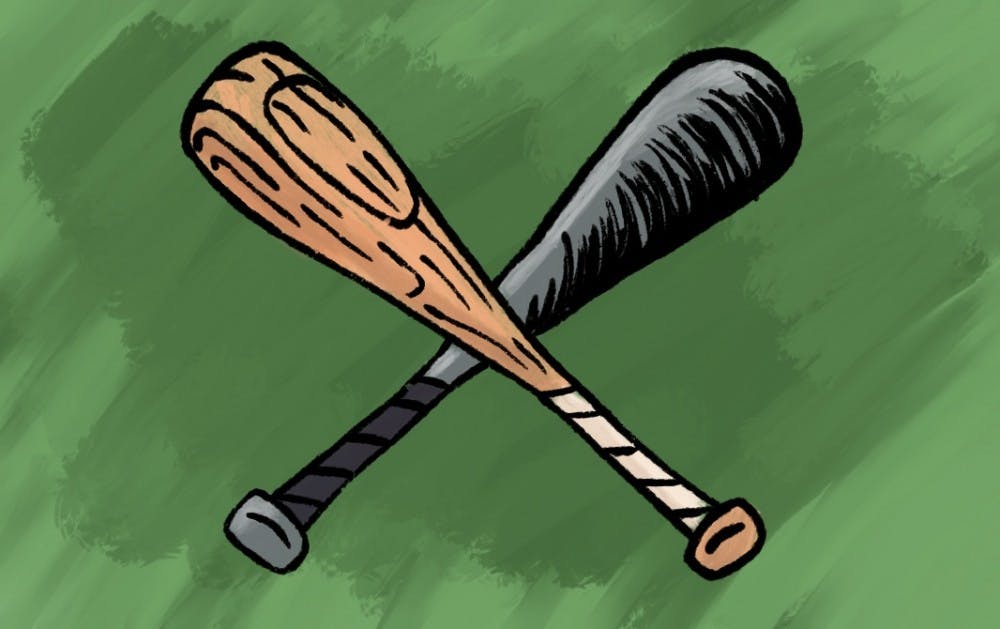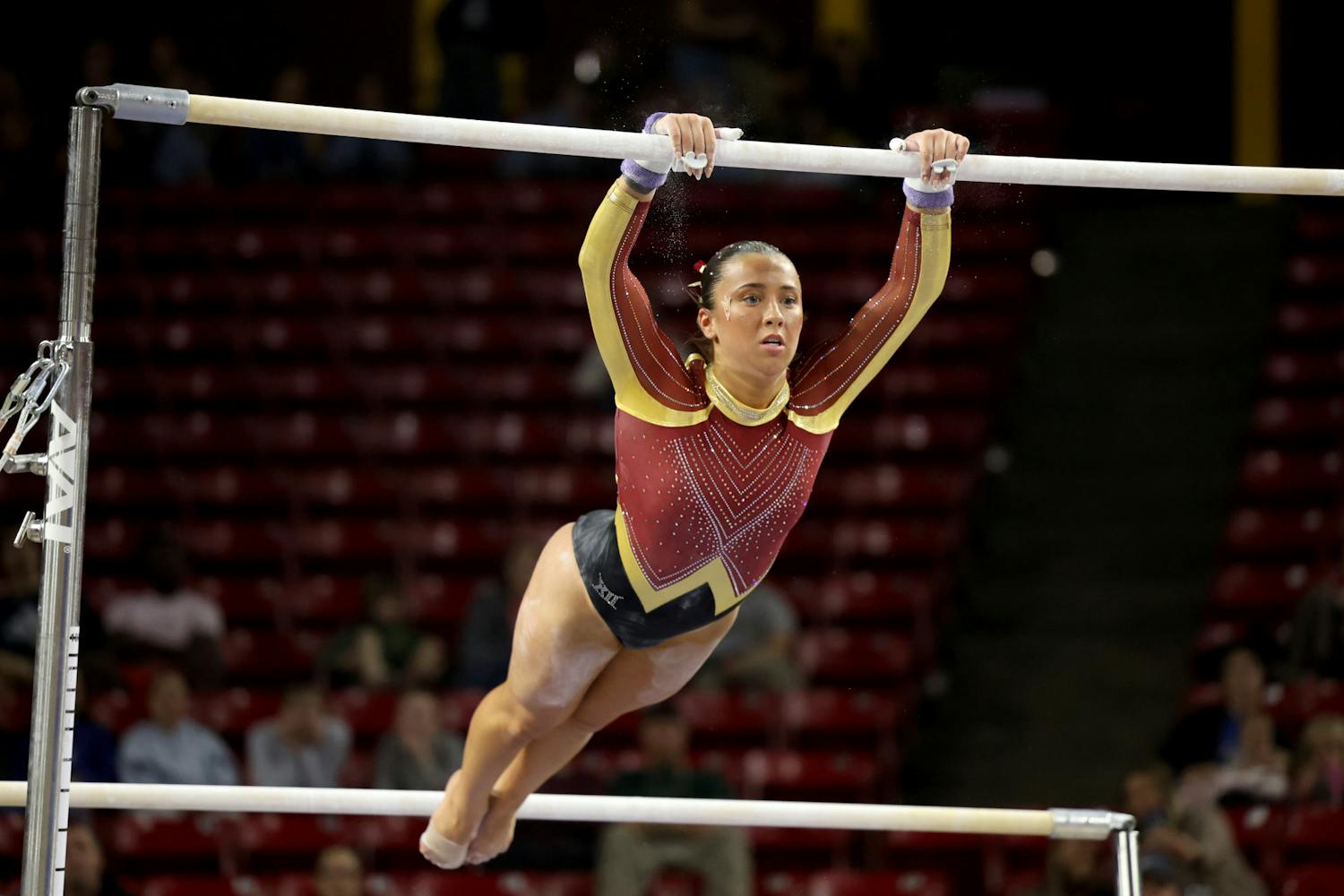It's time for college baseball players to go back to swinging wood bats.
Since 1973, collegiate batters have swung metal bats. That became somewhat of an issue in the late-2000s when the bats were so powerful and athletes were so strong that it made it relatively dangerous for defenders to try and field certain batted balls due to such high exit velocities.
"When the bats were nuclear, that was extreme," said Mike Rooney, former baseball coach at ASU and current ESPN college baseball analyst. "The home run was super prevalent, and it seemed like every hitter could hit a home run. Now, it's more comparable to wood bats."
To combat "nuclear" bats, baseball organizations for all age groups, including the NCAA, forced players to use certain regulated bats with approved BBCOR seals.
BBCOR stands for Batted Ball Coefficient for Restitution and is designed to have metal bats perform more like wood bats to limit the amount of energy transferred between the bat and ball and their contact and cut down on outlandish exit velocities.
For college players, it seems more beneficial to simply cut out the metal bats altogether and convert solely to wood.
Practically all the top high school baseball prospects in the U.S. swing wood bats in their high-profile tournaments and showcases for scouts in preparation of either the MLB draft or college baseball. Most of them only swing metal when they are forced to during high school games.
To have them swing metal bats in college seems counter-productive if the player's end goal is to become a professional player.
Any high school player drafted and/or signed with a major league team will go to rookie ball and swing wood bats from that point forward during their career. Those players could be as young as 17 years old and have to swing wood bats, but their counterparts who go to college swing metal.
Generally, a player using an metal bat is going to perform better than if he was using a wood bat, which can inflate some college players' stats.
That's not to say the best college players aren't swinging wood bats at other points in the year, because they typically swing wood bats in the fall and over the summer more than they swing metal bats during the season. However, it makes more sense from a player development standpoint to have them swinging wood bats all year.
"I like college baseball to have a little more offense in it," Rooney said. "It's more entertaining. A lot of aluminum bats don’t even perform as well as good wood bats."
Rooney also said he's not opposed to making the switch from metal to wood from a competition side of things but does think some logistical issues could arise by taking away the money bat companies pay to be represented with certain schools.
"College baseball is underfunded," Rooney said. "College baseball is the highest level that uses aluminum bats. Companies are heavily invested, and a lot of programs get free bats and equipment. In theory, I like the idea of using wood. There's not enough funding, though. Companies do help us with the sport, and that's a factor that has to be considered."
Money is indeed a major factor within college athletics and can't be ignored. ASU baseball, for example, has a partnership with DeMarini, which supplies bats for the team. ASU is one of only a handful of schools to have received custom bats from DeMarini, as well.
If the NCAA could figure out a way to make up for the potential lack of revenue from metal bat companies, the switch to wood bats is a no-brainer.
While there may not be as many home runs as a result of such a change, the crack of a wood bat is superior to the ting of metal, and it would stand to benefit the players more than anything else.
Reach the columnist at Steven.Slobodzian@asu.edu or follow @PSlobodzianASU on Twitter.
Like The State Press on Facebook and follow @statepress on Twitter.
Editor’s note: The opinions presented in this column are the author’s and do not imply any endorsement from The State Press or its editors.
Want to join the conversation? Send an email to opiniondesk.statepress@gmail.com. Keep letters under 500 words and be sure to include your university affiliation. Anonymity will not be granted.




